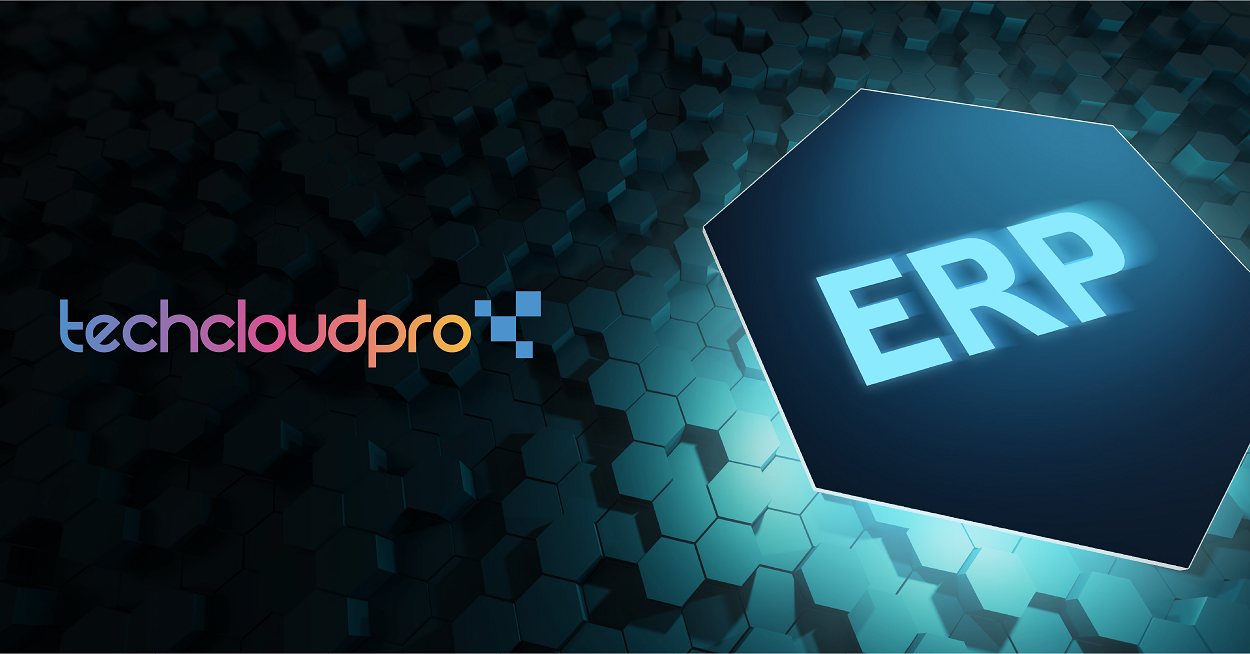NetSuite Modules: Types, uses and its Benefits
Posted On October Thursday 7, 2021

Today, NetSuite ERP is a part of everyday life for many companies. To understand the advantages what this technology offers, it is important to have a basic knowledge about its operation. Therefore, understanding ERP modules is essential here. NetSuite modules are capable of covering all the company’s needs in a single unified platform. The platform consists of modules such as financial, commercial, accounting, logistics, CRM, etc. Thanks to this modular structure, Netsuite ERP allows businesses to manage and integrate all areas of a company, by bringing more customization to the software and usability for managers. Want to understand better? Keep reading!
What are NetSuite modules?
NetSuite modules offer additional features to the NetSuite ERP platform, allowing businesses to easily customize the solution to suit their unique needs. That means, it’s a platform that works through bundles of functionality. There are basic, optional, and vertical modules. The quantity and type of module will depend a lot on the sector and the company.
Types of ERP modules that exist
The modules of ERP software is distinguished into 3 different types:
Basic: The basic modules are those that every company needs to manage its activity regardless of its size and sector, such as the financial module, an essential for all businesses.
Optional: Optional modules are those that are only necessary for certain companies. It is not mandatory to implement this module from the beginning. As new needs arise, these modules complement features that were not once considered necessary, but over time, have become indispensable. For instance, a manufacturing company that makes to order (MTO) will not need the inventory management module. But, if in the future they change their activity and manufacture by stock (MTS, Make to Stock), it will be essential.
Vertical: Vertical modules are those that are specially designed for a specific sector. In other words, if a company operates in a highly regulated sector such as pharmaceuticals or cosmetics, it needs a much more complete and specific tool to help it. As these companies have to comply with many regulations, quality standards and work with a very high volume of documentation, they need to have document management and quality management software (QMS).
List of available NetSuite Modules
Below, we have described the advantages of using the Netsuite module for each department and how they will help you in the different aspects of the business.
Manufacturing
While creating a business that needs manufacturing, you can use paper and spreadsheets to monitor available raw materials and daily production figures. But as the business grows, those manual methods become a major hurdle: You lose valuable production time later by breaking stocks of components, and actual manufacturing capacity is difficult to calculate.
One of the advantages of Netsuite manufacturing module is that the manufacturer can see the planned production for the next few months and compare it with the supplies available and on-demand. You can track production against that plan and, if demand increases, expand it by ordering more materials and hiring additional employees using an automated calculation of required replenishments (via MRP).
Financial
With a unique focus on excellent customer service, a direct-to-consumer (D2C) brand has a marketing automation and customer relationship management (CRM) platform, but they still rely on online banking tools and a mix of spreadsheets to manage the finances. Thus, manually tracking all the financial is not only time-consuming, but a lack of knowledge also puts the company in dire financial straits multiple times.
However, with NetSuite financial management module, you can centralize the information and have full control and vision on financial management. This is a module that works through the total integration of all financial information, such as accounts payable/receivable, cash flow, treasury, suppliers, tax, and accounting, as well as detailed and easy-to-understand management reports.
The essential features that a NetSuite financial module contains are:
- Bills to pay
- Bills to receive
- Bank control (checking account limit, bank applications, and reconciliations)
- Automatic posting of taxes withheld in accounts payable
- Import of bank statement for reconciliation
- Issuance of bank slip; Batch title write-off
- Control of bank accounts; Cash flow; Management reports.
Purchasing or Procurement
Manufacturing companies spend too much time searching for suppliers and collecting quotes for the raw materials they need to make products. Then, they need to manually submit quotes, compare them, select a winner, and finally launch the purchase order. Updating the list of approved suppliers and their contact information is a task that is perhaps sometimes secondary and is not done, which further slows down the process.
With the Netsuite purchasing module, the manufacturer automates requests for quotation, stores all responses in one place, and can submit purchase orders with just a few clicks, saving a lot of time. The purchasing module maintains an up-to-date list of all suppliers and allows the manufacturer to track the status of each pending purchase order.
Sales Management
With a Netsuite sales and marketing ERP module, sales representatives can convert quotes into sales orders in minutes and then send system-generated invoices to customers. Sales and marketing teams can see where any customer is in the sales cycle to determine the best next steps. Marketing tools allow the distributor to import lists and target new leads with emails and advertisements across multiple channels, resulting in a 10% increase in annual revenue.
Among the basic and essential features are:
- Automatic inventory write-off
- Automatic calculation of taxes
- Issuance of invoice
- Integration with sales order
- Generation of the invoice for services
- Generation of commercial invoice
- NFC-e-invoice generation
- Sales commissioning control.
Inventory Management
A bird’s-eye view of your inventory is important, especially for those in the manufacturing and retail industries. By integrating the Netsuite inventory management module, it displays real-time inventory levels and updates to the stock that is on its way to the warehouse. In addition, the stock module enables the automation of inventory adjustment, organization through groups, subgroups, batches, and departments, reducing costs and optimizing all the company’s stock processes, saving time in bureaucratic processes, and gaining the chance to invest in new strategies.
Moreover, the warehouse team processes more orders per day because the inventory management application displays the exact locations of all items.
Supply chain Management
Sales management is a critical module for the service industry, wholesale industry, retail industry, and manufacturing industry. Sales management is in charge of operations, from receiving an order to shipping the product.
A Netsuite supply chain management module (SCM) helps the retailer organize – purchase orders, monitor current production and compare it to demand, and prioritize the orders based on when the warehouse received them. With the SCM app, when customers return products, an associate scans each item, records its condition, and, if necessary, initiates an exchange. The business is in a much better position to scale as sales continue to increase.
E-commerce module
The Netsuite e-commerce module has easy-to-use tools that allow the marketing team to list new items, change product content, quickly jump on e-commerce trends, and update the look and feel of the site. By choosing an e-commerce application that is unified with the ERP, there is no need for integrations with third-party solutions, such as an order and inventory management solution or a CRM: all orders, customer, and payment information automatically flows to the ERP.
Production planning management
The production management module includes: production structure setting, process management, production operation management, workshop study management; this function standardizes the production operation process and provides the correct number for daily chaotic and disorderly production operations. It analyzes data to provide a strong guarantee for improving production efficiency and reducing production costs.
The plan management module includes: material demand planning and purchases demand planning. Moreover, this function greatly reduces the work effort of planners and ensures the accuracy and timeliness of the plan. A reasonable plan can effectively control the inventory cost of an enterprise and ensure the normal progress of production tasks.
Human Resource Management
Human resources pervade every department because it involves all employees of the company. This alone makes it an essential module. The human resource management module continuously collects information about employees, including holidays. If your company is big, it is likely to get difficult to maintain this information, and there is a risk of adding duplicate data to the system. All of these can be eliminated by the NetSuite Human Resource Management module.
It automatically generates paychecks; the owner only has to review them for accuracy, making payroll much faster and easier. This module stores employee records, including contact information, employment forms, and tax documents. It also guides managers and employees through the procedures for annual performance reviews.
How to choose the right module for your business?
The above are the basic functional modules of the NetSuite ERP, which play a huge role in the management of the enterprise. It not only helps the enterprise to reduce production costs but also optimizes the internal management process of the enterprise. In addition, companies can also add functional modules according to their actual needs to meet the company’s requirements and bring greater benefits to the enterprise.
Hiring a new system always involves choices, thinking about the business needs and how this software can meet them. Selecting the NetSuite ERP modules is an essential job that ensures that the chosen solution is functional, cost-effective, capable of optimizing processes, and has an acquisition cost that does not exceed the budget.
Thus, here we would like to offer you two essential tips to choose the best ERP modules that best suit your business needs.
Understand your company’s needs
Each company has its own needs, which are influenced by its size, segment, and even the processes it has on a daily basis. Therefore, when choosing a new modular system, it is essential to have an in-depth analysis of all the demands that are carried out. Thus, managers can know what the company needs, in terms of technology, to function well.
Check the characteristics
It is good that once you know the needs that fit your company, check the characteristics of them to see if you prefer customized software according to your business model or choose standardized software that fulfills the basic functions of any company.
Wrapping Up
With an automated decision-making process based on data, our NetSuite consultants at Techcloudpro structures a cycle of analysis and studies, always with the participation of the client. The idea is to understand the processes of this business, to then propose the solution that suits them and, more than that optimizes everyday practices.
Finally, current requirements and the design of new solutions will lead to the ideal solution for the customer. ERP modules ensure that this system is useful, functional, easy to operate, and capable of optimizing everyday processes. This is the technology’s proposal and, when looking for a new management platform, it is essential to prioritize an infrastructure that guarantees everything the company needs.
Techcloudpro can help your company in choosing the correct module for your business. Contact us!

